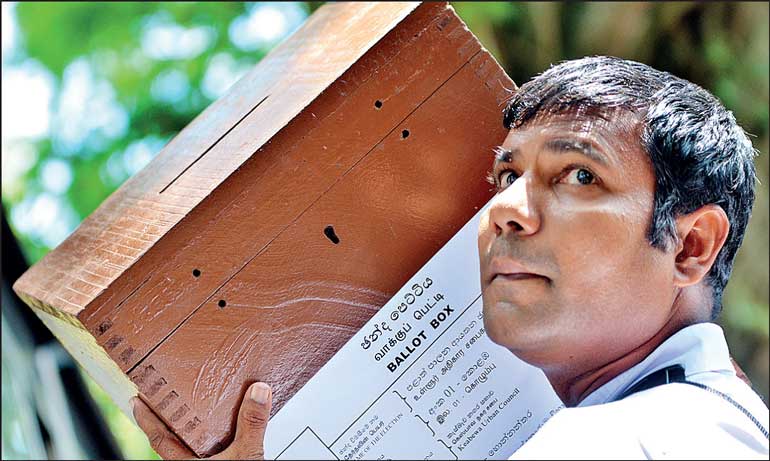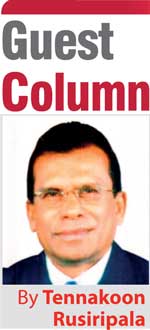Saturday Feb 21, 2026
Saturday Feb 21, 2026
Friday, 20 September 2024 00:28 - - {{hitsCtrl.values.hits}}

These voters have during all the previous elections casted the vote to the candidates of their choice. The important factor here is how they change their choice from time to time
 Since of late, Sri Lankan Presidential elections have become a battleground with the number of candidates progressively growing. Last Presidential election held on 16 November 2019 fielded 36 contestants while the 2024 candidacy increased to 38 numbers but ironically due to the demise of one candidate the number came down to 37 as of today.
Since of late, Sri Lankan Presidential elections have become a battleground with the number of candidates progressively growing. Last Presidential election held on 16 November 2019 fielded 36 contestants while the 2024 candidacy increased to 38 numbers but ironically due to the demise of one candidate the number came down to 37 as of today.
When we look at the results of the last Presidential election in 2019, the contest was polarised between two main candidates, and the final result was:
All 33 other candidates polled a total of 2.6% of the total valid votes with the highest polling 0.37%.
That was the third occasion of the JVP and coalitions led by JVP contested Presidential elections in this country. The founder leader of the JVP Rohana Wijeweera contested in 1982 and came 3rd poling only 273,428 votes which was 4.19% of the total polled. In this election the JVP leader polled over 4% of the votes in the following districts:
Trinco 5.7%; Hambantota 14.62%; Matara 6.62%; Galle 4.98%; Matale 4.43%; Anuradhapura 5.88%; Polonnaruwa 7.71%; Moneragala 6.91%; Kegalle 4.00%
The next Presidential election contested by JVP was in 1999, with Nandana Gunatillake as the party candidate. He polled a total of 344,173 votes which was 4.08% of the Total Votes polled.
10 other contestants received the other votes, the highest among them polling 0.43%.
In the 2010 election JVP supported Sarath Fonseka who lost polling only 36.4% against MR who polled 61%.
The JVP did not field a candidate in the 2015 Presidential election where Maithripala Sirisena won defeating MR (47.5%) by polling 51% of the votes.
JVP contested the 2019 Presidential election under the new Coalition NPP fielding Anura Kumara Dissanayake as the Presidential candidate and polled 3.16%, polling a total of 418,553 votes.
In the current Presidential election, according to the prevailing situation the contest appears to be between three main contenders, namely, Ranil Wickremesinghe (Independent and incumbent President), Sajith Premadasa (SJB and the leader of Opposition), and Anura Kumara Dissanayake (leader of the JVP now in coalition as NPP). Various research organisations, NGOs, have published results of their surveys conducted on their own. While I do not wish to be aligned with any of those determinations, hope to produce an analysis based on the past results and present the position basing the available information projecting it to the future on a balance of probabilities. My projections are on the theory of “more likely than not to have occurred”. We are aware that researchers apply various new hypothesis to conclude on a possibility. Whereas in a forecast made on the balance of probability the focus will be on the actual happenings before us, taken as probable evidence for a possible explanation of something that could happen in relation to the happenings of the past.
 In the current election the total number of eligible voters is 17.1 million. It is also on record that one million new voters are included in this number. Another significant factor that needs to be taken into account in any related probing is that 56% of the voter base comprises of women. It is this voter base that will decide who the president of the country is going to be.
In the current election the total number of eligible voters is 17.1 million. It is also on record that one million new voters are included in this number. Another significant factor that needs to be taken into account in any related probing is that 56% of the voter base comprises of women. It is this voter base that will decide who the president of the country is going to be.
These voters have during all the previous elections casted the vote to the candidates of their choice. The important factor here is how they change their choice from time to time. If one group of voters continue their allegiance to the same candidate they vote once then any change in that choice will be the vote of the newly registered voters.